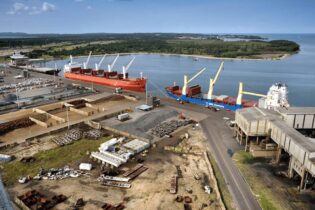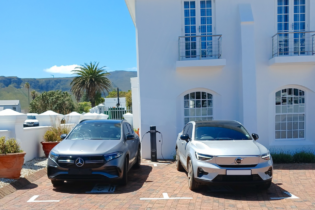Dr Christian Rosswag, CEO and regional coordinator: Africa & Middle East for MAN Financial Services, tells Simon Foulds why it is advantageous for transport operators to use its captive finance when purchasing MAN’s trucks.
“As a captive finance organisation we work closely with the manufacturer and we specialise in the transport industry . Dealing with the needs of the transport operator is our daily bread and butter. We have a unique competitive advantage due to our proximity to the manufacturer when offering packaged solutions like a full maintenance operating rental. This is a product where the operator can use the asset without having to deal with the risks related to ownership. The customer simply returns the vehicle at the end of term. These type of products require the buy-in of the manufacturer, which is easier to get for a manufacturer-linked finance house compared to a bank – they usually only offer just the finance, not an integrated solution. “The huge advantage of having captive finance in place in the organisation is that our people can go out with the salesman to the customer and arrange the finance solution so the asset can be sold to the customer and delivered. The closeness and the ability to offer finance as a package with the actual truck is a huge advantage. It is also less hassle for the customer.” Tough financial times Rosswag adds: “In tough financial times, the advantage of having a captive finance house like ourselves is that we can assess the risk in a different way due to our specific market and product knowledge and the association with the manufacturer, which gives more room for favourable credit decisions. That is where we usually gain most of the market share during tough economic times.”The company can assist the customer with skip payments, restructuring of the whole debt as well as assist the customer in talking to their banks to get extra working capital facility approved. “There are various things we can do in order to help the customer, because we have no interest in losing the customer and we really want to help them through difficult times and we have the means of doing this. “Contracts
He says the type of finance product and the length of the finance period is primarily determined by which industry the customer is operating in –whether he does high or lower mileage or whether he has just a three- or four-year underlying contract, for example, so he does not need the asset longterm. “It is a tailor-made solution and depends on the needs and preferences of the customer. It can be an instalment sale that he just buys the vehicle and gets ownership, it could be as a lease, but it can also be a full maintenance operating rental where he just operates the asset for a certain number of years – backed up by a maintenance contract and a buyback guarantee at the end, so he does not really have to worry about the asset he can just worry about his business.”One advantage is that the customer always has the latest product because the fleet is replaced on a regular basis. “The customer does not have to think about selling the asset at the end of the period; he has his fixed service and maintenance costs and he has his fixed finance costs –so it is almost a hassle-free solution for the customer. “ Popular Rosswag says that this option is becoming more popular with the bigger fleet operators. “They just want to use the assets at the end of the day and with the big fleet customers there is also a huge focus on the operating costs. And they can see the advantage of this type of product. The smaller operator maybe has the preference to own the asset and really see it on the balance sheet to build up equity in the asset. Big corporation operators just look at their operating costs and say ‘it is not my core business, let someone else do it and we just have our running costs under control’.”






